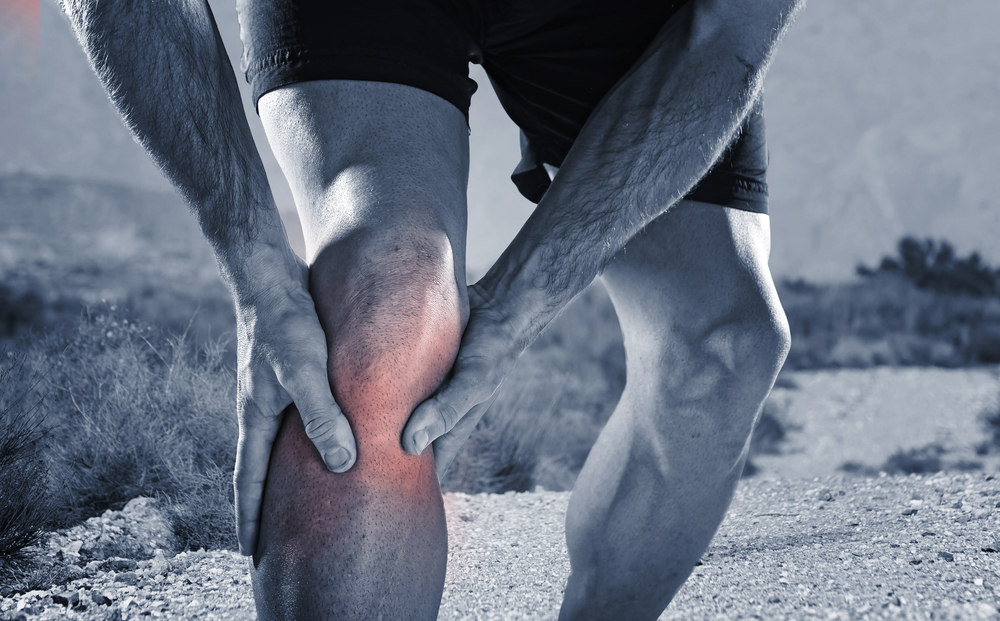Allergies make life miserable. They devour box after box of tissues., they grate your eyes like sand, and they leave your throat feeling raw. The question is: Can allergies cause joint pain as well?
Evidence suggests that both food and seasonal allergies can heighten the suffering of those with inflammatory conditions. Let’s take a closer look at the biological mechanisms behind the link.
How Does Joint Pain Happen?

Pain in your joints stems from many causes, such as arthritis. Two forms of this disease exist—osteoarthritis and rheumatoid arthritis.
Osteoarthritis stems from a breakdown of the cartilage that cushions your joints. It most often develops after age 40, and overuse of body parts can accelerate development. For example, runners frequently endure knee pain from repeated impact.
Rheumatoid arthritis (RA) refers to an autoimmune disorder. With this condition, inflammation results from the immune system attacking healthy tissue. RA targets the joints and can cause deformity and immobility in extreme cases.
Joint pain is exceedingly common. One survey found one-third of respondents reported this type of ache at least once within the previous 30 days. Some find relief through over-the-counter medications, while others require prescriptions and physician monitoring.
Allergy Symptoms
Allergies may exacerbate joint pain by creating an inflammatory response. Because your immune system views allergens as a threat, it creates inflammation to combat them. This can create or exacerbate joint pain, and it’s why joint pain is common for those who have particularly bad allergies. Additional allergy symptoms include:
- Nasal issues: If you suffer airborne allergies, you may sneeze a lot or experience a runny nose. Nasal problems also make you feel stuffy and unable to breathe.
- Eye issues: Seasonal allergy sufferers often experience red, itchy eyes.
- Chest congestion: You may experience tightness in your chest as an allergy symptom.
- Wheezing: In extreme cases, your allergies might make it difficult for you to breathe. Seek medical attention to rule out cardiovascular issues.
- Inflammation: Allergy sufferers may experience swelling in the face, nose or throat.
It’s important to consider these allergy symptoms because they play a key role in diagnosing your issue. After all, joint pain by itself can be alarming, but it’s less likely to be a chronic issue when accompanied by the allergy symptoms above.
Treatments for Allergies and Joint Pain
Are you asking yourself, “Can allergies cause joint pain?” Well, the answer is yes. Fortunately, there are various treatment options available for allergies and joint pain. Has your physician determined that allergies play a role? Then avoid substances that trigger an inflammatory response. Your doctor may prescribe an antihistamine to help you get through seasonal allergies.
Corticosteroids are another treatment option; they reduce inflammation and relieve swelling associated with joint pain. Because these medications sometimes come with side effects, doctors prescribe them only in severe cases.
Holistic therapies ease the suffering of both joint pain and allergies. Some people swear by taking local honey to treat airborne triggers. However, in sensitive individuals, small amounts of pollen can cause anaphylaxis. Consult with your doctor before trying any similar treatment.
Alternatively, exercise can alleviate joint pain by increasing the flow of synovial fluid, which reduces friction in joint movements. If you suffer from RA and moving on land is difficult, give aquatic therapy a try. The water supports the majority of your body weight, easing pressure on your inflamed joints.
How to Get Rid of Allergens


Many people experience airborne allergies that increase pain and joint swelling. However, plenty of these people cannot afford medical treatment to treat their pain. If you’re in a similar situation, try the following techniques to minimize exposure to allergens:
- Clean your house: Wear a face mask while you clean. Inspect around kitchens, bathrooms and sink cabinets for mold. If you find any, remove it with distilled white vinegar. Vacuum carpets and furniture thoroughly to remove pollen and pet dander.
- Keep your windows closed: It’s nice to keep the windows open when the weather is pleasant. However, an open window is a welcome mat for allergens, especially on days with high pollen counts. Run your air conditioner instead and change filters at least monthly.
- Stay indoors on windy days: Wind blows pollen and other allergens around. If it’s blustery outside, curl up with a novel or tune in to your favorite TV show.
Allergies Can Cause Joint Pain—But You Can Find Relief
Allergies exacerbate joint pain in many individuals. When they meet allergens, the body’s inflammatory response attacks healthy tissue. If you follow the advice above, you can find relief.
How do you handle joint pain caused by allergies?
Tell us about your pain journey in the comments.
What allergy or joint pain topics do you want to hear about?
Email us at info@painresource.com with your ideas.
Are you on Facebook?
Join our online community by clicking here.





GOOD EVENING: My daughter had always a bit of joint pain. She was detected with beginning of Lupus. She could cope with it. However after she got vaccinated (MODERNA) for COCID, she has a terrible wondering joint pain. Could this be caused or accentuated by an allergic reaction to the vaccine. Should she see an ALLERGY/INMULOGY DOCTOR?
After eating foods that conrain yeast or sugar I have severe neck pain